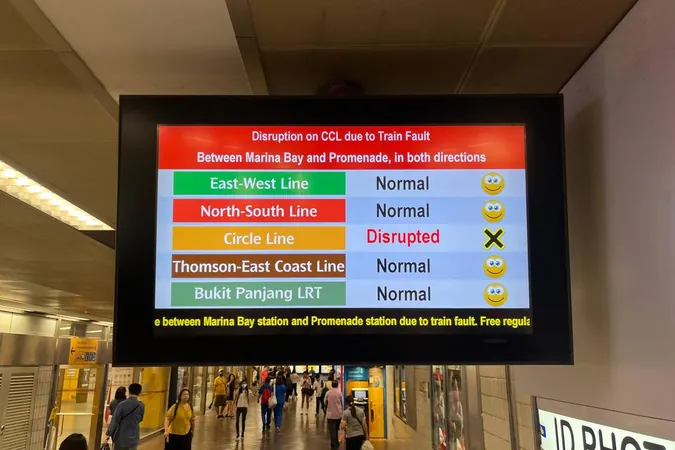
Revolutionary Study Reveals Powerful Strategy to Slash Heart Attack and Stroke Risks!
2025-09-01
Author: Wei
Unlock the Secrets to Healthy Blood Pressure!
A groundbreaking new study reveals that aggressive efforts to lower high blood pressure could significantly reduce the risk of heart attacks and strokes! High blood pressure, or hypertension, affects a staggering 1.28 billion adults around the globe aged 30 to 79. If left unchecked, it can lead to serious complications including heart disease and kidney problems.
Is Your Blood Pressure in the Danger Zone?
Most doctors recommend that patients with hypertension aim for a systolic blood pressure reading of around 140 mmHg, the upper number in a blood pressure ratio that indicates arterial pressure when the heart beats. Although a reading of 140 mmHg is considered high, it sits at the lower end of the hypertension scale.
Game-Changing Findings from The Lancet!
The recent study published in The Lancet medical journal shows that striving to reduce systolic blood pressure even further—to below 120 or 130 mmHg—can lead to a dramatic drop in heart-related issues, including major heart attacks and strokes.
A Controversial Debate!
This research adds fuel to the ongoing debate in the medical community about how low blood pressure goals should actually be. Some experts caution that overly aggressive control of blood pressure might increase fall risks among older adults.
A Comprehensive Analysis!
Conducted by a team from China, the study represents the most extensive analysis yet on the impact of intense blood pressure management. Researchers evaluated data from nearly 80,000 participants across six clinical trials in China, Canada, and the United States.
The Winning Strategy!
Results showed that participants who engaged in intensive control—utilizing a combination of medication, weight loss, and quitting smoking—reported fewer heart attacks, strokes, and cardiovascular deaths compared to those following standard treatment methods.
Be Aware of Side Effects!
However, this rigorous approach to blood pressure management also comes with risks. Participants in the intensive control group were more likely to experience side effects such as dizziness, fainting, kidney issues, and abnormal heart rhythms.
What This Means for You!
Despite these risks, the study authors noted a “net benefit” to intensive blood pressure management. They advocate for a tailored approach for each patient, highlighting the necessity of personalized strategies to achieve optimal health outcomes while preventing both overtreatment and undertreatment.
Don’t Wait—Act Now!
The time to take charge of your blood pressure is now. Consult your healthcare provider about these findings, and explore the best strategies for managing your health effectively!





 Brasil (PT)
Brasil (PT)
 Canada (EN)
Canada (EN)
 Chile (ES)
Chile (ES)
 Česko (CS)
Česko (CS)
 대한민국 (KO)
대한민국 (KO)
 España (ES)
España (ES)
 France (FR)
France (FR)
 Hong Kong (EN)
Hong Kong (EN)
 Italia (IT)
Italia (IT)
 日本 (JA)
日本 (JA)
 Magyarország (HU)
Magyarország (HU)
 Norge (NO)
Norge (NO)
 Polska (PL)
Polska (PL)
 Schweiz (DE)
Schweiz (DE)
 Singapore (EN)
Singapore (EN)
 Sverige (SV)
Sverige (SV)
 Suomi (FI)
Suomi (FI)
 Türkiye (TR)
Türkiye (TR)
 الإمارات العربية المتحدة (AR)
الإمارات العربية المتحدة (AR)